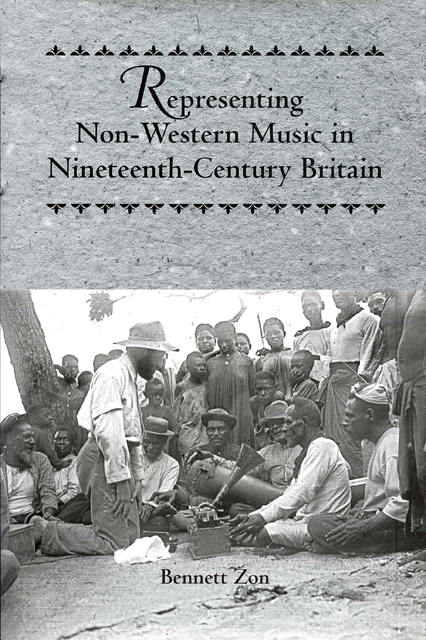Book contents
- Frontmatter
- Dedication
- Contents
- List of Illustrations
- Preface
- Acknowledgments
- Introduction Humanizing the Musical Savage: Orientalism and Racism in the History of British Ethnomusicology
- Part One Early Anthropological Influences
- Part Two Musicology in Transition to Evolution
- Part Three Individualism and the Influence of Evolution: Charles Samuel Myers and the Role of Psychology
- Part Four Retaining Cultural Identity: A. H. Fox Strangways and the Problems of Transcription
- Epilogue The “Ethnomusicology” in Long Nineteenth-Century Representations of Non-Western Music
- Works Cited
- Index
- Eastman Studies in Music
Chapter Ten - Charles Samuel Myers and the General Movement toward Individualism
Published online by Cambridge University Press: 10 March 2023
- Frontmatter
- Dedication
- Contents
- List of Illustrations
- Preface
- Acknowledgments
- Introduction Humanizing the Musical Savage: Orientalism and Racism in the History of British Ethnomusicology
- Part One Early Anthropological Influences
- Part Two Musicology in Transition to Evolution
- Part Three Individualism and the Influence of Evolution: Charles Samuel Myers and the Role of Psychology
- Part Four Retaining Cultural Identity: A. H. Fox Strangways and the Problems of Transcription
- Epilogue The “Ethnomusicology” in Long Nineteenth-Century Representations of Non-Western Music
- Works Cited
- Index
- Eastman Studies in Music
Summary
Despite its prevalence toward the end of the century the type of universalism developing in Wallasheck and Glyn was not consensual among anthropologists or musicologists, and would not become consensual until it was harmonized with theories of individualism in the seminal work of the psychologist and forerunner of British ethnomusicology, Charles Samuel Myers. Through what became his theory of individual differences (known as differential psychology), Myers resists the assumption of universal human characteristics, and adopts a theory of human psychology predicated on identifying and celebrating human characteristics that give rise to personal identity and difference. At the same time, Myers retains an indomitable belief in the idea of universal human improvement, using it to combat scientific racism and the depersonalization of non-Western peoples. These ideas of universal human improvement and individual differences are not uncommon in psychological or anthropological literature of the time, as is revealed below, but their application and development in relation to music was groundbreaking.
In order to understand the groundbreaking nature of Myers’s work in non- Western music, it is necessary to appreciate the wide-ranging multidisciplinary provenance of his ideas. To aid this appreciation the following four chapters trace Myers’s antecedents from the rise of individualism in late nineteenthcentury anthropological writings on music to psychological (and evolutionary) notions of the musical faculty, and then on to theories of individual differences and their application in Myers’s psychological, musical, and ethnomusicological writings. This chapter begins with a brief biography of Myers, and then proceeds to background information on individualism in anthropology, with specific reference to work relating to the geographical area of Australia—of particular relevance to Myers’s work in the Torres Strait.
Charles Samuel Myers: Brief Biography
Most biographical information on Myers derives principally from various obituaries and Myers’s own brief autobiographical entry in Murchison’s A History of Psychology in Autobiography (1961). Although clearly deemed important in Hearnshaw, his work in psychology has not elicited any considerable amount of critical attention, apart from some rudimentary historical and intellectual work and research contextualizing the centrally important Torres Strait expedition and some later anthropological work.
- Type
- Chapter
- Information
- Representing Non-Western Music in Nineteenth-Century Britain , pp. 159 - 176Publisher: Boydell & BrewerFirst published in: 2023



